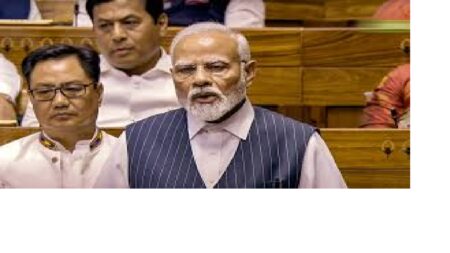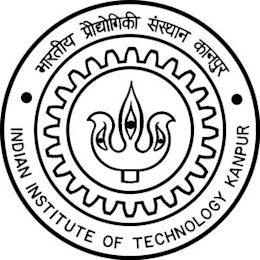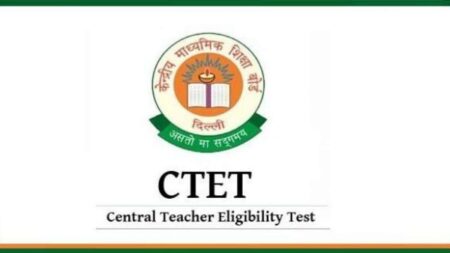PM Modi addressed the nation yesterday on Shikshak Parv and congratulated teachers who received national awards from the President of India. He also quoted vital points to transform education and make it more inclusive.
On the 1st anniversary of the National Education Policy, Prime Minister Narendra Modi addressed the teachers, students, and stakeholders via video conferencing during ‘Shikshak Parv 2021’; this celebration honours the contribution of the contributions of teachers.
He launched many initiatives to transform the education sector and to make it more inclusive and equitable.
As noted, the theme of ‘Shikshak Parv-2021’ is ‘Quality and Sustainable Schools: Learnings from Schools in India’.
The PMO said that the celebration would encourage innovative practices to ensure continuity of education at all levels and improve quality, inclusive practices, and sustainability in schools across the country.
On this occasion, PM Modi congratulated 44 teachers who received national awards from the President of India.
PM Modi said that he wanted to congratulate the teachers who received National Awards. You have worked under challenging circumstances. Your efforts are commendable.”
Important initiatives launched by PM Modi on ‘Sikshak Parv’
1. PM Modi launched ‘Vidyanjali 2.0’ and termed it a platform that would contribute towards ‘Sabka Saath, Sabka Vikas, Sabka Vishwas’ with ‘Sabka Prayas’.
He said that it would help the private sector to come forward and contribute to increasing the quality of education in government schools.
2. National Digital Educational Architecture ( N-DEAR), launched by PM, will play a significant role in adopting modern teaching techniques by eliminating inequality in education.
“Just as UPI interface has revolutionized the banking sector, N-DEAR will act as a super connect between all academic activities”, said PM Modi.
3. PM said that India is making technology like Talking Books and AudioBooks a part of education.
He said that for the progress of any country, education should not only be inclusive but should also be equitable. It will help to impart good quality education to those who are visually impaired.
4. The Nishtha training programme was launched today to assist teachers in quickly learning about new systems and techniques.
5. A dictionary for Indian Sign language is the new initiative. It is the 1st time in the country that Curriculum to add Indian Sign Language.
PM announced that the centre is working on making pre-schooling for 3-yr-old kids mandatory, and parents should understand that learning at the initial stage will build a good personality for the child.
Key Points of National Education Policy
The policy will transform the Indian education system to meet the demands of the 21st Century.
The new policy rectifies the poor literacy and numeracy outcomes associated with primary schools, reduce dropout levels in middle and secondary schools and adopts the multi-disciplinary approach in the higher education system.
Apart from this, the policy also focuses on early childhood care, restructuring Curriculum and pedagogy, reforming assessments and exams, and investing in teacher training and broad-basing their appraisal.
Though the NEP 2020 seeks to bring a holistic change in the education system of India, its success of NEP depends on the will and way and the implementation.
Significance of National Education Policy 2020
1. The 10+2 system will bifurcate the current system into (5+3+3+4) format. The first five years of school will be composed of the foundation stage, including three years of pre-primary school and classes 1 and 2.
The upcoming three years will be divided into a preparatory phase from classes 3 to 5. Later, three years of middle stage (classes 6 to 8) and four years of secondary stage (classes 9 to 12).
2. Departure from obstructive Mentality: Another critical aspect of school education in the new policy is breaking the strict division of arts, commerce and science streams in high school. It can lay the foundation for a multi-disciplinary approach in high education.
3. Schools will not have any compulsory formation of streams of arts, commerce, science, etc. Students can opt-out of whichever courses they want.
4. The policy document states that children learn and grasp non-trivial concepts more quickly in their home language.
The NEP only recommends the mother tongue as a medium of instruction and does not make it compulsory.
5. Standalone Higher Education Institutes and professional education institutes will include in multi-disciplinary education. The new education policy aims for “broad-based, flexible learning”.
The Ministry of Education celebrates the Shiksha Parv. The celebration started on September 5 and will continue till September 17 to recognize the valuable contributions of teachers and take New Education Policy (NEP) 2020 a step forward.
The Ministry of Education celebrated the Shiksha Parv. The celebration started on September 5 and will continue till September 17 to recognize the valuable contributions of teachers and take New Education Policy (NEP) 2020 a step forward.












